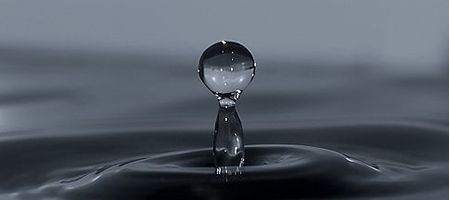A team of Kentucky scientists has found a way to ‘tweak’ an inexpensive semiconductor to generate hydrogen from water using sunlight.

Through theoretical computations, they’ve demonstrated that an alloy formed by a two percent substitution of antimony in gallium nitride has the right electrical properties to enable solar light energy to split water molecules into hydrogen and oxygen, a process known as photoelectrochemical (PEC) water splitting.
When the alloy is immersed in water and exposed to sunlight, the chemical bond between the hydrogen and oxygen molecules in water is broken, allowing the hydrogen to be collected.
“Previous research on PEC has focused on complex materials. We decided to go against the conventional wisdom and start with some easy-to-produce materials, even if they lacked the right arrangement of electrons to meet PEC criteria,” says Professor Madhu Menon of the University of Kentucky.
“Our goal was to see if a minimal ‘tweaking’ of the electronic arrangement in these materials would accomplish the desired results.”
The GaN-Sb alloy is the first easy-to-produce candidate for PEC water splitting, claims the team. It functions as a catalyst in the PEC reaction, meaning it’s not consumed, and can be reused indefinitely.
Because pure hydrogen gas isn’t found widely in nature, it must be manufactured by unlocking it from other compounds. Currently, it takes a lot of electricity to generate hydrogen by water splitting, which is why most of the hydrogen manufactured today is derived from non-renewable sources such as coal and natural gas.
Sunkara says the GaN-Sb alloy has the potential to convert solar energy into an economical, carbon-free source for hydrogen.
“Hydrogen production now involves a large amount of CO2 emissions,” Sunkara said. “Once this alloy material is widely available, it could conceivably be used to make zero-emissions fuel for powering homes and cars and to heat homes.”
The researchers are now working to produce the alloy and test its ability to convert solar energy to hydrogen.






